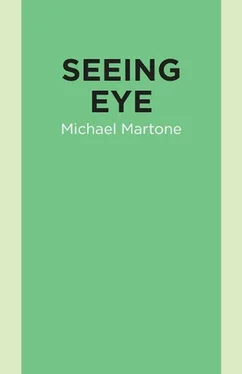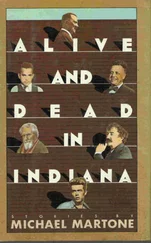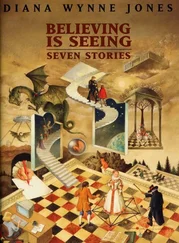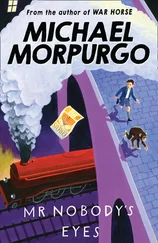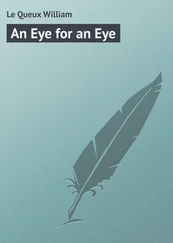Michael Martone - Seeing Eye
Здесь есть возможность читать онлайн «Michael Martone - Seeing Eye» весь текст электронной книги совершенно бесплатно (целиком полную версию без сокращений). В некоторых случаях можно слушать аудио, скачать через торрент в формате fb2 и присутствует краткое содержание. Год выпуска: 2013, Издательство: Dzanc Books, Жанр: Современная проза, на английском языке. Описание произведения, (предисловие) а так же отзывы посетителей доступны на портале библиотеки ЛибКат.
- Название:Seeing Eye
- Автор:
- Издательство:Dzanc Books
- Жанр:
- Год:2013
- ISBN:нет данных
- Рейтинг книги:5 / 5. Голосов: 1
-
Избранное:Добавить в избранное
- Отзывы:
-
Ваша оценка:
- 100
- 1
- 2
- 3
- 4
- 5
Seeing Eye: краткое содержание, описание и аннотация
Предлагаем к чтению аннотацию, описание, краткое содержание или предисловие (зависит от того, что написал сам автор книги «Seeing Eye»). Если вы не нашли необходимую информацию о книге — напишите в комментариях, мы постараемся отыскать её.
Seeing Eye — читать онлайн бесплатно полную книгу (весь текст) целиком
Ниже представлен текст книги, разбитый по страницам. Система сохранения места последней прочитанной страницы, позволяет с удобством читать онлайн бесплатно книгу «Seeing Eye», без необходимости каждый раз заново искать на чём Вы остановились. Поставьте закладку, и сможете в любой момент перейти на страницу, на которой закончили чтение.
Интервал:
Закладка:
I told my mother about the jets zeroing in on me because I knew it would remind her of the summer the red-winged blackbirds buzzed her as she mowed the alleys in her orchard. She wears a baseball hat now while tracing compulsory figures around the apple trees on the Toro. She hates to see my dad go into town because each way has its own junkyard or flea market. Once he came back in a new old pickup hauling a new trailer carrying the old Continental he was driving when he left.
I went to Purdue and majored in ice cream. The food labs I worked in were vast expanses of tooth-colored tile with eruptions of sparkling stainless and nickel chrome appliances spaced about the room. I wore white smocks and paper hats and wrote papers on stabilizing fruit ribbons and fudge swirls. In the gleaming kitchens, I was a long way from the wreckage of our farm. The milk too had been transformed into something else. I thought of ice cream as milk raised up to a pure art form. There was quarried butter fat to dabble on a palette of ingredients — exotic nuts and berries, fragrances shipped to us in plastic tubs, extracts of roots and seedpods, raisins soaked in rum so they wouldn’t freeze. I worked in the Union’s snack bar too, waiting for pharmacy students to sample all the flavors. They stood there, deep in thought, licking the wooden spoons. I scooped up double scoops for couples who couldn’t decide and crossed their cones like they were interviewing each other about the taste. Professors’ kids ordered bubble gum, embarrassing their parents, who predicted the disasters just as the first dips cascaded to the floor.
Every spring, back on the farm, the barn swallows build their nests in the same places in the rafters. About the time we turned the cows out after a winter inside the barn, the swallows swooped through the top of the Dutch door, jinking around the post and leveling out just under the mow floor, stirring the cirrus clouds of cobwebs. Then they peel off, flapping their wings once, back out the door. I am scraping the shit into the gutters and plowing it toward the far door to shovel into the spreader. The yard is already mud, the cows mired, moo, their skins twitching and ears flapping. The swallows shoot in and out, daubing the beams with mud and straw. There will be one nest right over the stanchion of Jean, whose black back weathers the summer of droppings from above as if her coat is wearing away.
My parents thought I’d never come home.
If you farm a dairy, you can never get away. That is, if you are milking cows, you have to be on the farm all the time. Milking is twice a day. When I first came back to the farm after quitting school, I tried milking three times a day to increase the yield. Slowly, I broke the herd’s habits. The production fell way off. That’s to be expected. There was nothing scientific in my methods. I weighed the cans before I poured the milk into the holding tank and marked a piece of scrap paper with the pounds of each. If I had the time between the milkings, I’d draw a line to connect the dots on my rude chart. It looked like a cardiograph. Molly came on in the afternoon, when Clover was falling off. Amy made a sawtooth pattern, like she was singing scales. The vacuum pumps breathed all the time. I was inside the heartbeat of the barn. And I’d hear the cows’ big heartbeats through their sides as I rested my head against them, hooking up the claws. Over time, the weight came back up. I could feel it in the cans as I lugged them up the alley. They got used to the new routine, the extra scoop of sweet oats. But I gave it up. I was milking all the time. When I had a chance to sleep, I dreamed of the purple iodine dip I used to disinfect the teats. My whole body was stained. I fell asleep twitching, dreaming about the wet warm muck of the brown paper towels I used to massage the bags to get them to let down.
Now that I am on the farm working, I don’t like to ask my dad to do the chores. His knees are bad from the stooping he did all his life. But sometimes I have to get away. I like to take the Continental into Peru. It is the same blue-black topless model that Kennedy was riding in when he was shot. It has the backward-opening suicide doors. I nose into the line of hot rods cruising in downtown Peru and imagine those rear doors popped out, scooping up a bystander off the street into the backseat, surprised but ready to go. Instead, the high school kids always say my car turns the loop into a funeral procession. Watching from the parking lot of the Come N Go, they see the Zapruder film. A creepy car. I am too old for this anyway. I end up buying some cigarettes for my dad and then point the endless hood of the car back to the farm and get home in time to muck out the stalls.
Those nights after I’ve come back home from those silly trips to town, I hear my parents worrying about me. Their whispers come up to my bedroom through a floor grate there to conduct the heat. I never heard words but sighs that have nothing to do with passion. My mother never changed my room when I went away to school. All the silver model airplanes are still tethered to the light fixture on the ceiling with yellow, rotting string. I never had enough patience to paint them. The glue on my fingers had fogged the clear plastic canopies. The decals are dry and peeling. The planes twist above me, in that rising updraft of worry, like compass needles looking for a true north. On the walls are posters of prize-winning 4-H cows. Behind the planes, they look like a backdrop of clouds, billowing thunderheads, dappled skies. In those pictures, the cows are posed with their front legs resting on little hills that are covered over with turf. They are supposed to look more beautiful elevated slightly like that. But I always think the step-up hill takes away from the picture no matter how artfully it is hidden. I hung up my sketches of the new calves. I ripped them from the herd book. In the shadows, they could be mechanical drawings of camouflaged transport planes. My mother taped up the drawing Annie did when she visited the farm, the butt ends of the herd in a row of stalls at milking time, their pinbones forming a range of snowcapped mountains.
That night after the planes buzzed me in the alfalfa field, I asked my parents if I could go into town. I called them from Peru, from the phone booth in the parking lot of the Come N Go. Pilots from the base still in their green nylon flight suits, perhaps the ones who flew over me that day, got into the midnight blue van. A National Guard unit on maneuvers. The four of them had Popsicles. I told my mom I thought I’d head on down to Purdue, maybe stay a night.
“Whatever,” she said. She wrote down the feeding instructions I gave her for Dad to use. I told her who the vet had treated for mastitis. Her milk would go to the calves and cats.
I said, “I hope this isn’t too much trouble.” Moths were batting at the light in the booth, so I opened the door to turn it off. I heard the sound of jets taking off over at the base, a sound like ripping cloth.
“You know your father likes to keep his hand in. I’ll keep him company.” I could see her that night. She would tune the radio to one of those magic stations where the songs have no words and then spread the lime thicker than I do in the alleyway. When I got back it would look like it had snowed inside the barn.
“Say hello to Annie for us,” she said.
I brought Annie home to the farm once for a weekend when we were both in school. She was from the Region, in northern Indiana, and had never been on a farm. I went up to Hobart once with her, back then, and she took me to the dunes. We stared at Lake Michigan. I remember it looked like it could be farmed, flat and dusty. We huddled on some riprap and saw the lights of Chicago flare up where the sun set. It is the only body of water I’ve been to where I couldn’t see the shore on the other side, and it scared me. Annie said she felt the same way walking the lanes around the farm. The land just seemed to go on forever.
Читать дальшеИнтервал:
Закладка:
Похожие книги на «Seeing Eye»
Представляем Вашему вниманию похожие книги на «Seeing Eye» списком для выбора. Мы отобрали схожую по названию и смыслу литературу в надежде предоставить читателям больше вариантов отыскать новые, интересные, ещё непрочитанные произведения.
Обсуждение, отзывы о книге «Seeing Eye» и просто собственные мнения читателей. Оставьте ваши комментарии, напишите, что Вы думаете о произведении, его смысле или главных героях. Укажите что конкретно понравилось, а что нет, и почему Вы так считаете.
